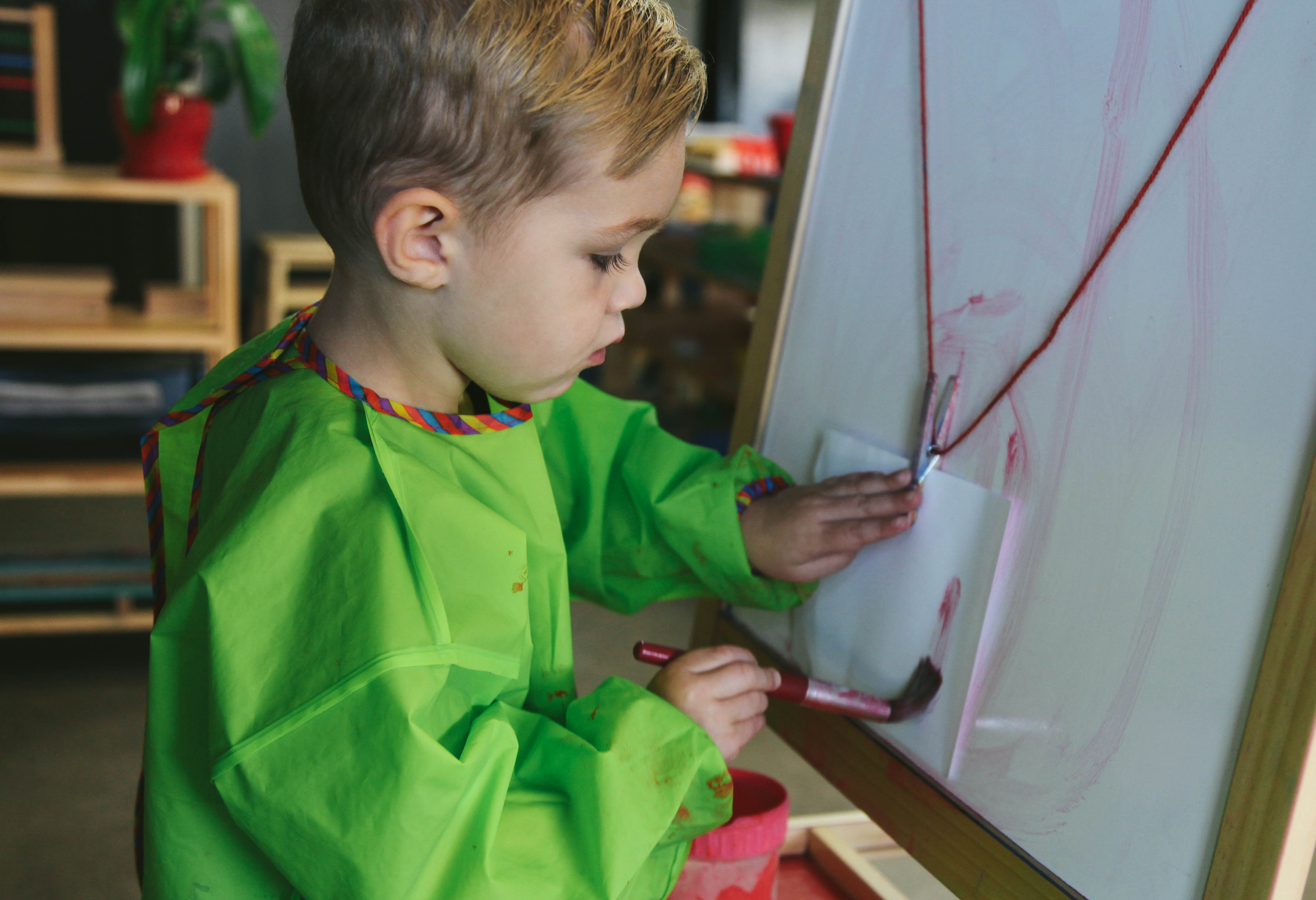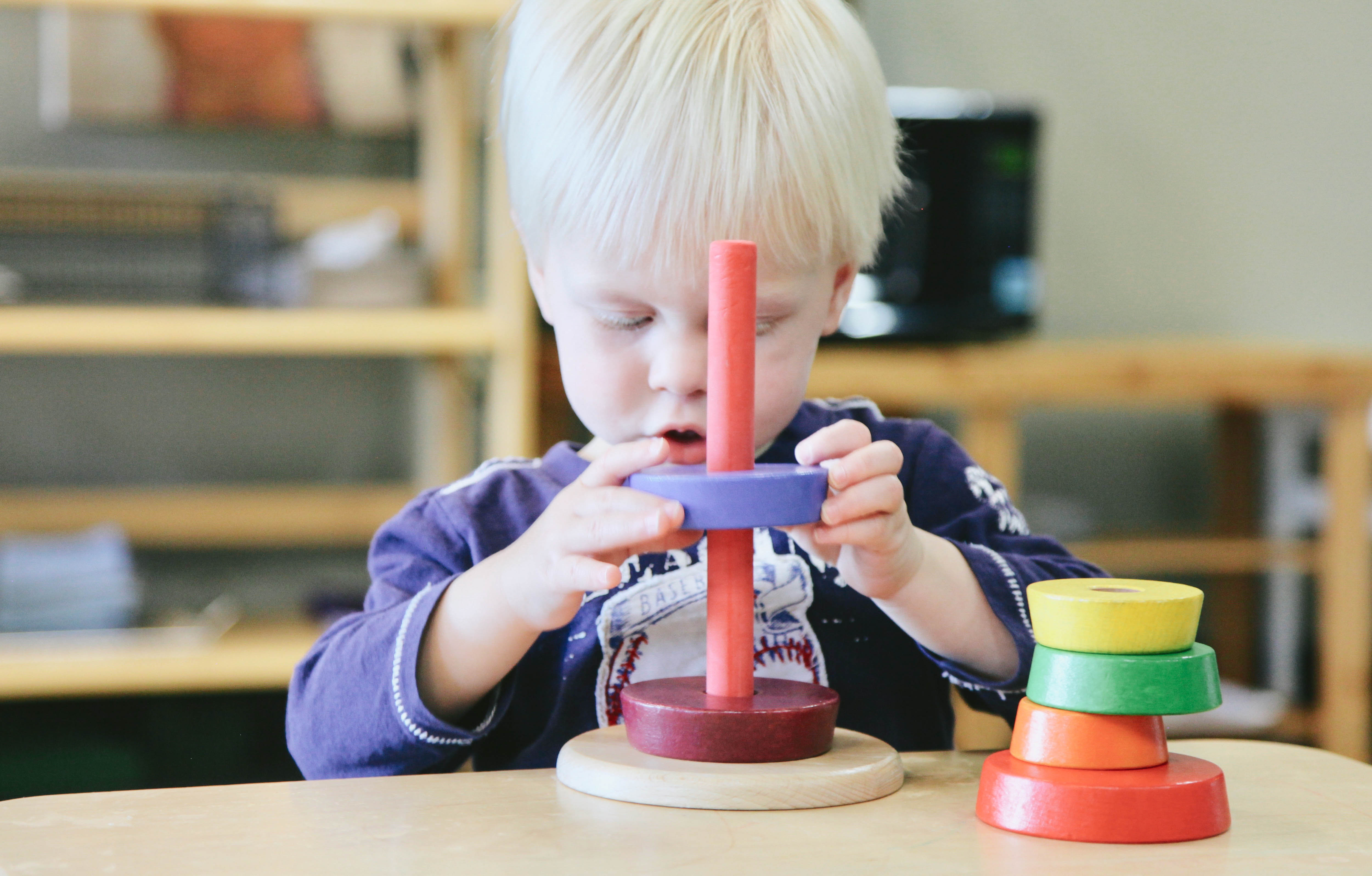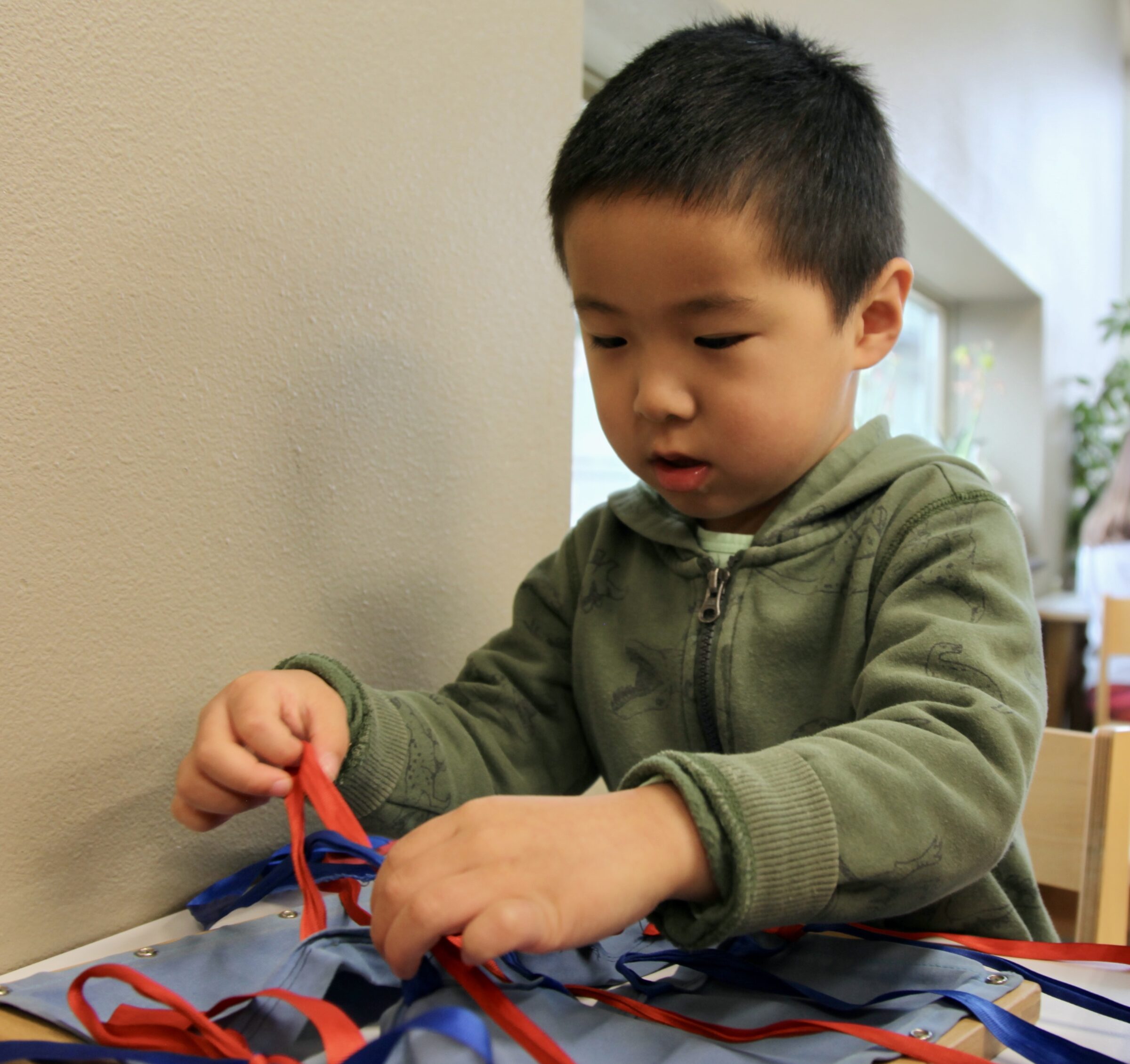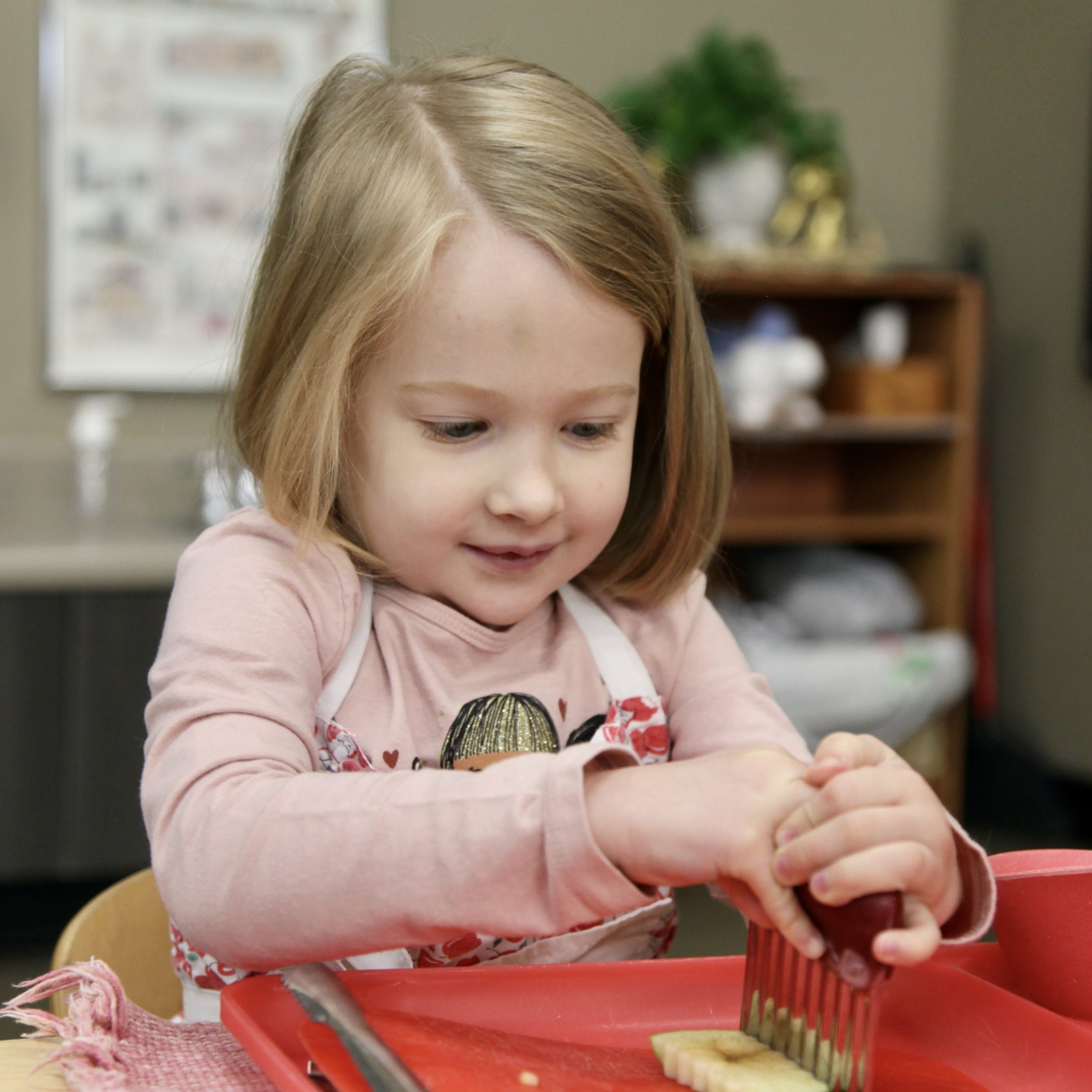Sharing in Montessori
Thoughts & Reflections
Sharing is so important. It’s a microcosm of altruism. Maria Montessori considered herself to be a citizen of the world. Travel is becoming easier and more common. We can literally see across the world immediately at the touch of a button, taste flavors from the other side of the planet at the cafe down the block, hear languages unlike our own spoken in the line at the grocery store. We feel empathy not just for our own family, but for families we’ll probably never meet who are suffering after a weather disaster. We want our children to look out for one another, and that begins with something so small as sharing.
We warp sharing, though. I cannot be the only sister who felt indignant when her own sister “wasn’t sharing.” It’s possible I missed the point. Rather than “what’s mine is yours” I felt a stronger sense of “what’s yours should be mine.” When sharing isn’t genuine, it’s hard to feel generous. I might have been sharing on the surface, but the bottom of that iceberg was begrudging, maybe a hint of cranky resentment.
When we observe in a Montessori classroom, we rarely see cranky resentment, tears, reporting “you’re supposed to share!” We see true generosity, mutual respect, patience. How is this supported?

Before we share (no pun intended!) the ways we foster this at school, it’s important to note, Home is Not a Classroom. What works in the classroom might not be effective at home, and vice versa. Sometimes we use up all our emotional currency in our public persona and we need a cuddle or quiet time or even fall into a tantrum in our private, family life. This is absolutely natural, and happens for adults as well as for children. Just something to keep in mind as you read this post, and as you foster sharing and positive social habits at home.
You might notice, there’s only one of each material in the classroom. Why is this? When there’s only one — one geometry cabinet, one easel, one binomial cube. What if more than one child wants to use it?
Well, yes! Exactly! There’s one and it’s there for all of us to enjoy. Sometimes it might not be available. This helps children develop patience. That child is using it, and at some point it will be available again. In five minutes, in an hour, tomorrow. Just like when I’m done it’s ready for someone else to use, when they’re done it will be ready for someone else to use, and that someone could be me!
What if two children want to use the same material at the same time?
That occasionally, rarely happens. When it does happen, the children figure it out. We notice what’s happening, and we give the children the skills to be able to figure it out on their own. I see that you both want to use the moveable alphabet at the same time. You go ahead and talk and figure out who is going to use it first and who is going to do something else. If you can’t figure it out, perhaps you can both do something different.
Then we give space for the children to figure it out. When it’s just you and a friend, you can extend grace. Much like a referee or a judge, we sometimes feel the need to stand our ground, to defend our case when there is an authority figure making the decision. We cannot be the deciders. The truth is, even with a video of events unfolding, we cannot see what happened leading up to this difference of opinion. I got here first! I was going to do it first! I wanted to do it SINCE LAST NIGHT! It can become an arms race, and there are no winners. Your pride is on the line and you cannot back down. When we say who gets to do something first, we don’t support grace and looking out for one another, we don’t give space for children to change their minds.

We also accidentally support this, shall we say, selfish mentality. It truly is an accident, and it comes about when we’re attempting the opposite.
Perhaps this seems familiar:
You’ve had enough time with the tricycle/dinosaur/red crayon. It’s time to put it away so someone else can have a turn.
Or this:
Your friend/sibling/new stranger on the playground would like a turn, can you give them a turn?
We’re trying to help children see themselves in the Other. We’re trying to help children look out for others, look beyond themselves. So often, this leads to that superficial sharing — giving begrudgingly, or demanding others “share,” when we really mean “I want it, give it to me.”
Instead, when we trust a child — something Maria Montessori encourages us to do — they show us how empathetic they truly are. In the Montessori classroom, children can work with something for as long as they want. When children don’t feel like something could be taken from them, they don’t feel a need to take things from others. They trust that the desired object will be available later, and when it’s their turn they’ll get to use it until they’re done, too.
So, how can we support sharing?
We can start by modeling sharing, in a way that really helps children develop positive social skills to use with their peers. For instance, when we’re playing with a child and they ask for something, we’re immediately inclined to say yes. Instead, try, “I’m using this one right now, but you can have this one, or you can use it when I’m done.” If children get used to the idea that they ask for something someone else is using when you’re playing together, they’ll expect this when they’re playing with friends, too, that sense of “you’re supposed to share!” It’s only sharing if it’s from the heart and genuine.
Another strong way to support sharing at home is to help a child share in a way that is comfortable for them. When there are friends visiting, help your child to pick a few toys they’re willing to share with their friends. We all have our most treasured belongings we’re reluctant to share, and things we’re more than happy to share with others. Pick these less-cherished items, and gather in a safe place, such as the living room. Close doors to spaces where the favorite items are kept, and practice sharing.
Finally, help your child set limits. This is a great time for a bit of pretend play! Practice saying “No thank you, maybe later,” in various forms. There’s a rule at school that you can play with anyone who wants to play with you, or you can play alone. It’s always a choice to be alone (some of us are more introverted than others and find alone time very restorative and necessary) but it’s unkind to exclude people. If you’re saying no to playing with others, which is absolutely fine, you’re saying no to playing with anyone at all for the time being. Maybe later. The second part to this rule is you don’t have to change your game. You can say yes to others playing with you, but you don’t have to do whatever they want. If they want to join what you’re doing, and you’re playing with others right now, that’s fine, the more the merrier! “I’d rather play alone, but thank you!” “I still want to run, would you like to run with us?” “I don’t want to share my toys right now, maybe later.” are all respectful answers. When the sharing or changing game or playing with others comes, it comes from the heart.
Written by:
Charlotte Snyder



